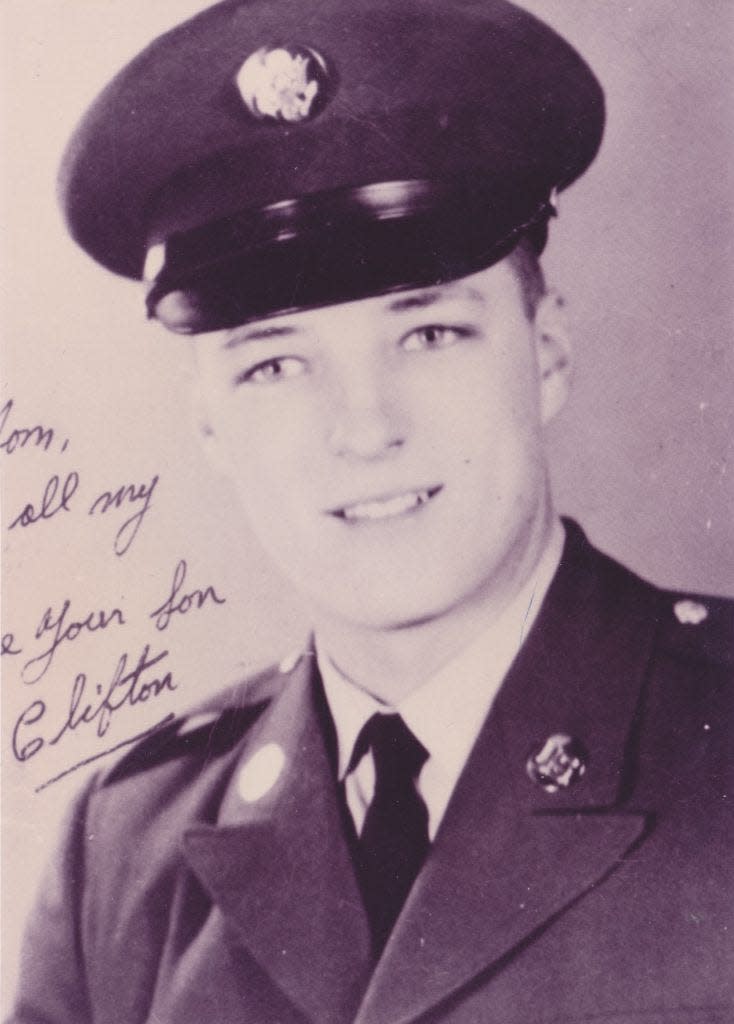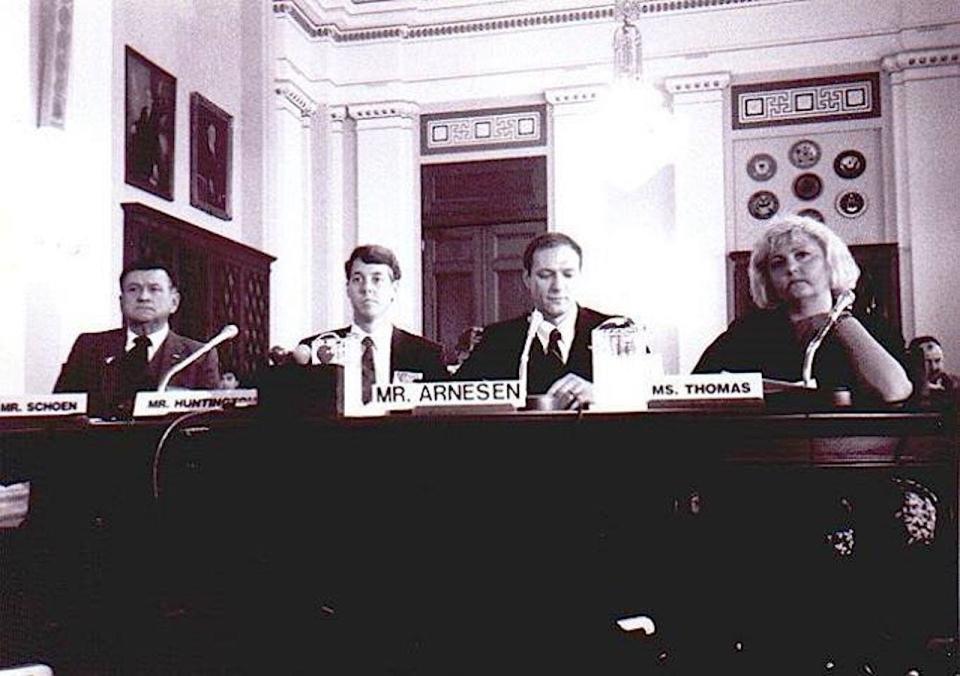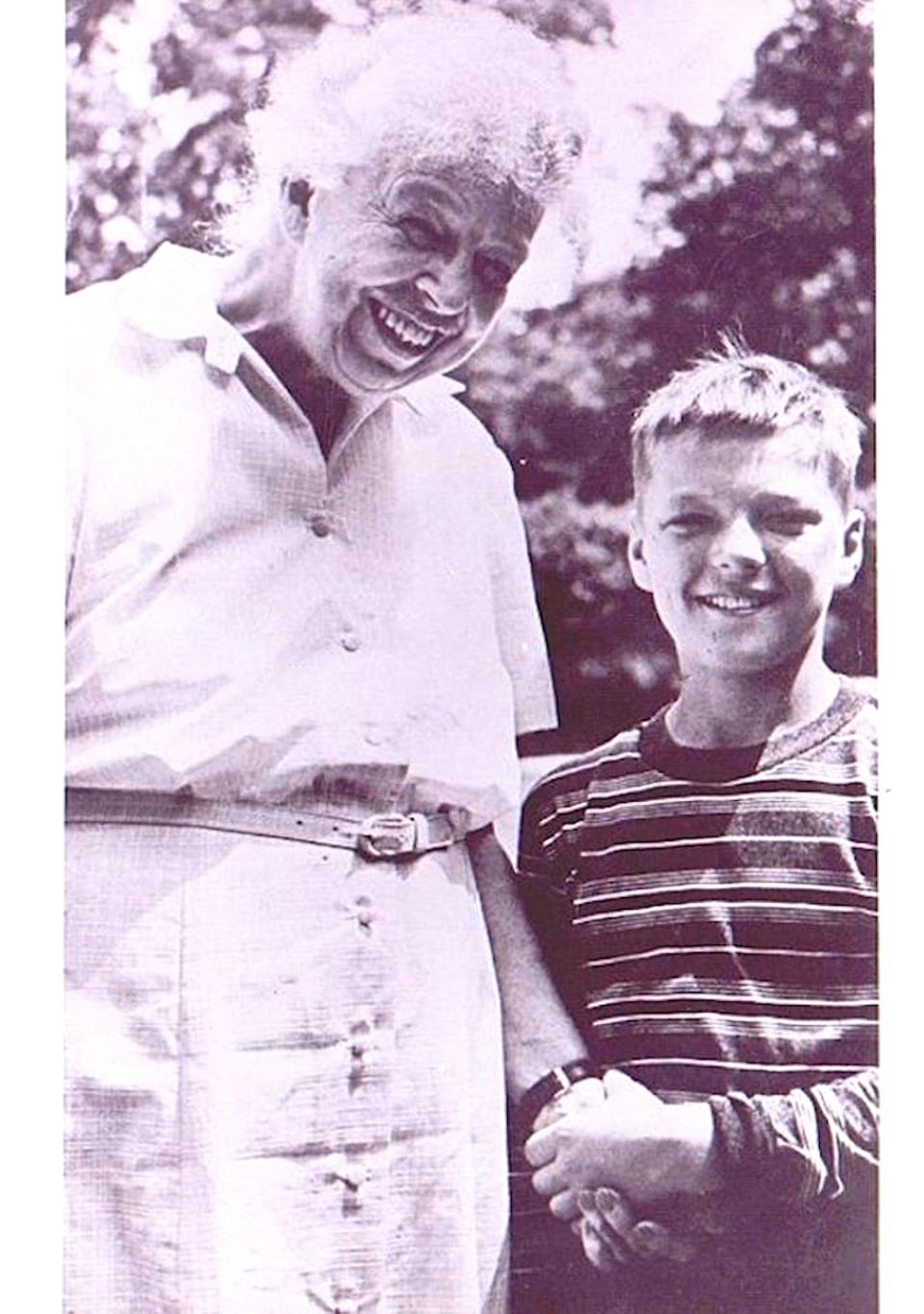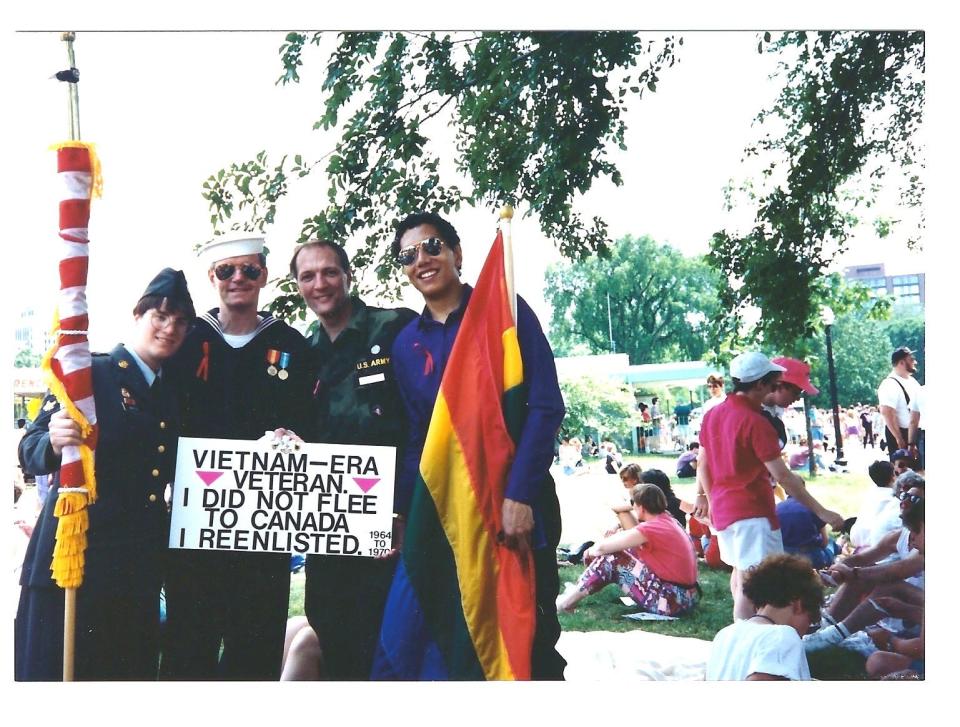This vet from NJ served when the military shunned LGBTQ people. Now his story is enshrined
- Oops!Something went wrong.Please try again later.
Jersey City native Cliff Arnesen enlisted in the U.S. Army at 17, made it through basic and advanced infantry training at Fort Dix and was about to go to trainee leadership school when he paid a three-week visit to his mother, who was dealing with an abusive relationship.
It was 1966, and the U.S. was ramping up the number of troops it was sending into the Vietnam War. Arnesen turned himself in for going AWOL. While under arrest at Fort Dix, he told his company commander that he was bisexual.
In January of 1967, Arnesen was dishonorably discharged.
His experience has been preserved as part of the Library of Congress’ collection “Serving in Silence: LGBTQ+ Veterans.”
For more than 30 years, Arnesen has been an advocate for lesbian, gay and bisexual veterans. He was the first openly bisexual veteran ever to testify before Congress, and he co-founded the nonprofit American Veterans for Equal Rights.

“I found this a really great way to sublimate my own anger at the military, what they had done to me,” Arnesen said. “It was a great opportunity for me to take that anger and shape it and put it into a form that was constructive, to work for the benefit of GLBTQ veterans.”
The Library of Congress’ Veterans History Project had been working with American Veterans for Equal Rights and other partners to gather interviews of LGBTQ+ veterans since before “Don’t Ask, Don’t Tell” was repealed in 2011, the project’s Director Monica Mohindra said.
That federal policy barred lesbian, gay and bisexual people in the military from sharing their identities without a discharge threat. In 2021, President Joe Biden signed an order prohibiting the military from discharging people because of their gender identity.
“It's been a long road to making sure that we are able to collect, to preserve for posterity, to make accessible and therefore discoverable, the fullness of the human story of America's veterans, and that includes necessarily those of LGBTQ+ experience,” Mohindra said.
Interview a veteran
The online webpage for “Serving in Silence” highlights 22 LGBTQ+ veterans, but Mohindra said that’s just a curated collection that is “not fully encompassing of all of our collections of the LGBTQ+ experience.”

The Veterans History Project, created in 2000 by Congress, boasts more than 117,000 individual collections, and they continue to grow with public participation. Anyone can interview a veteran they know in their lives; the project’s website offers a field kit with instructions on conducting the interview and archival forms to fill out.
Steve Estes interviewed Arnesen and many other veterans whose stories have been included in the Veterans History Project. He published a book called “Ask & Tell: Gay & Lesbian Veterans Speak Out.”
Bisexual community overlooked
Even though many LGBTQ+ groups have faced discrimination, Arnesen noticed that the bisexual experience has often been excluded, and he felt that his own identity was invalidated. Even though it is the largest community under the LGBTQ+ umbrella, Arnesen said, he notices pervasive bisexual erasure.
“You don’t know how many bisexual people have made enormous contributions to the overall" LGBTQ+ movement, Arnesen said. “People like Alexander the Great, Julius Caesar, Freddie Mercury, David Bowie — all bisexual. But none of that comes up in certain history books.
"That’s why the bisexual community is up in arms all the time and we’re trying to educate,” Arnesen said.

Every year since Biden took office, a delegation of bisexual people met with the president’s administration to discuss mental health issues facing the community.
Research shows that bisexual people suffer worse mental health outcomes — including higher rates of self-harm, depression, anxiety and suicidal thoughts — than heterosexuals, lesbians and gay men, according to the Bisexual Resource Center.
Addressing dishonorable discharges
Testimony Arnesen gave before Congress in 1989 and 1990 gave the bisexual community “a voice,” he said. He spoke before the U.S. House Committee on Veterans Affairs about HIV/AIDS, PTSD and sodomy laws within the Uniform Code of Military Justice, and advocated for upgrading less-than-honorable discharges that were issued because of homosexuality and bisexuality.

Arnesen’s discharge was upgraded to a “general under honorable conditions” discharge in 1977 after he applied through an amnesty program started by former President Jimmy Carter. That allowed him access to services designated for veterans, such as health care.
He eventually worked for Veterans Affairs, healed from years of substance abuse, and — as a Massachusetts resident — dove into his advocacy career by becoming president of New England Gay, Lesbian and Bisexual Veterans Inc.
He finished college and spent decades with his life partner.
There’s much more to Arnesen’s story, and his fellow LGBTQ+ veterans, than simply his inclusion in the Veterans History Collection. To learn more about his history, and in turn that of lesbian, gay and bisexual rights for veterans, visit the Clifton Francis Arnesen Jr. collection within the Library of Congress’ Veterans History Project.
This article originally appeared on NorthJersey.com: This NJ vet served when LGBTQ were shunned. His tale is now enshrined

